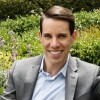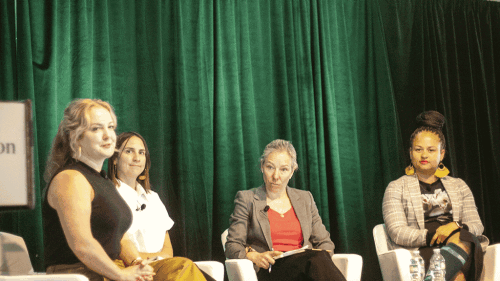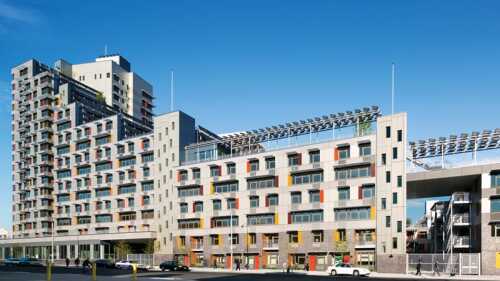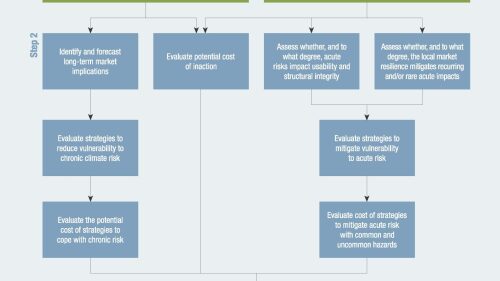Between January and March 2021, Urban Landonline published a series of articles chronicling the efforts of member-led task forces organized by ULI district councils in Chicago, Phoenix, Sacramento, and Tampato address local policy and regulatory barriers to creation of healthier and more equitable places. These initiatives were part of ULI’s District Council Task Force for Health and Social Equity Project, which I led on behalf of ULI’s Building Healthy Places Initiativewith support from the Robert Wood Johnson Foundation.
The collective findings from the four cities, along with district council–level individual reports, are available at uli.org/taskforces.
Throughout 2019 and 2020, the program offered ULI members the opportunity to leverage their local leadership positions to explore and document problematic land use policies and practices, push for reform, and effect change. Each district council convened a leadership group of 10 to 12 local members specializing in areas such as land use, development, affordable housing, design, and community health.
To promote collaboration on ideas and ensure that consideration of race and class were thoughtfully embedded in project work plans, task force members convened regularly, often inviting nonlocal experts to join to inspire and inform their thinking. Epic Health Solutions and Equitable Cities, the project’s team of equity advisers, often moderated sessions and provided space for personal reflection and growth.
Despite rapid execution of project work plans in the first year, nothing could have prepared the four task forces for the challenges they would face in year two. Amid the COVID-19 pandemic and escalating advocacy for social and racial justice, members grieved for those lost and reached outside their comfort zones to address the nation’s racial reckoning. The team in Tampa was even forced to scuttle its first year of work when a regional transit bill, the focus of its task force, was ruled unconstitutional by the Florida Supreme Court. In response to repeated delays caused by COVID, as well as other factors, the project timeline was extended by three months.
Measurable Impact
Despite the global pandemic, the national reckoning on race, and shifting work plans, ULI members banded together to create better communities:
- ULI Arizona raised awareness of the housing affordability crisis gripping the Phoenix metro area. Recognizing that high-quality, attainable housing is a key element of a healthy community, the task force developed a framework for planners and policymakers to collaboratively implement market strategies to provide new housing solutions.
- ULI Chicago sought to offset the city’s affordable housing shortage by unlocking policy barriers prohibiting accessory dwelling units (ADUs), a broad term for secondary housing such as coach houses, granny flats, and attic and basement units. The task force’s recommendations inspired and informed Chicago’s ADU pilot program in five equitably distributed neighborhoods across the city.
- ULI Sacramento led a series of culturally inclusive conversations with residents of the Meadowview neighborhood in South Sacramento. The robust engagement with the community, including youths and seniors, helped build trust and informed development of a toolkit designed to empower residents to engage in decision-making on a variety of issues affecting the shape, form, and character of their neighborhood. The task force was an outgrowth of the 2018 Advisory Services panel focused on promoting equitable transit-oriented development in South Sacramento.
- ULI Tampa Bay advised the city on how to achieve its goal of increasing the supply of affordable and attainable housing citywide. Its work shaped Mayor Jane Castor’s workforce and affordable housing strategy, including a commitment to establish a community land trust and hire a senior affordable housing lead.
Six Takeaways for Building Healthy and Equitable Places
As important as their local successes, the four task forces yielded common themes and valuable takeaways that reinforce findings from health and equity–related work by ULI and other organizations. These takeaways can inform and inspire future efforts led by other district councils and ULI members in advancing the Institute’s mission of shaping the future of the built environment for transformative impact in communities worldwide.
The six takeaways are:
- Ground projects in health and social equity. Applying a health and social equity lens to problems uncovers opportunities for high-impact changes to real estate and planning practice. In each case, the task force sought to foster policies and development projects that serve people in a broad income range, encourage engagement by a more diverse group of residents, and cultivate more stakeholders committed to providing a higher quality of life for all people in the community. For instance, by applying a health lens to its discovery process, ULI Chicago uncovered the specific need to address air quality and mold abatement in future basement-level ADUs. As all the task forces learned, focusing on health and social equity upfront is the first step toward achieving such outcomes.
- Identify challenges and create solutions with residents. Multiple methods of community engagement and careful cultivation of allies, including young people, are necessary in order to achieve change. ULI Sacramento effectively engaged key businesses, real estate professionals, elected officials, and high-level community leaders through individual and small group meetings. However, this approach was not as successful in reaching grassroots community leaders, in part because the task force was introduced to some of these stakeholders much later in the project.The group’s efforts to connect with the community were more successful with the rollout of ULI’s UrbanPlan program in the neighborhood high school. The task force helped design the curriculum not only as an education opportunity for the students, but also as an outreach tool to overcome language barriers in a community with a high number of non–English speaking residents. Once engaged, the students expanded the project’s reach when they talked with their families about what they learned and how they might get involved. As a result, the task force recommended incorporating multiple outreach pathways into grassroots-level projects.
- Take time to listen and learn from the outside experts. In addition to engaging with hometown stakeholders and resident experts, involving geographically dispersed leaders can inspire and infuse communities with fresh ideas and new perspectives.ULI Tampa Bay assembled a virtual panel of professionals from across the United States to advise city leaders on plans to increase the availability of attainable housing. As outsiders, the panel members were unencumbered by local politics or traditions. Their freedom to be bold continues to generate excitement, and the city is already moving forward with several of the panel’s key recommendations. Likewise, ULI Arizona infused its task force with perspectives from a variety of outside speakers, including Christopher Ptomey, executive director of ULI’s Terwilliger Center for Housing, and Mike Kingsella, executive director of Up for Growth.Silo busting and bold thinking were not limited to Tampa and metro Phoenix; all task forces sought to act on forward-thinking ideas and establish new partnerships between health and real estate, between public and private sectors, between city leaders and community groups, and within the cohort of participating district councils.
- Maintain a vision while staying nimble. Defining a problem statement upfront and committing to an executable scope of work can facilitate rapid project execution and momentum toward achieving results.For instance, ULI Chicago and its partners started with a clearly defined problem statement and a detailed scope of work to unlock policy barriers to adding ADUs citywide. Armed with clarity of purpose and a persistence of vision, the group moved rapidly from inception to recommendations to inspiring adoption of the city’s pilot ADU program. ULI Tampa Bay, was forced to abandon initial plans because of the defeat of a local transit bill. Organized and at the ready, upon learning of the mayor’s need to refine the city’s vision for affordable housing, Tampa’s task force easily made the pivot to assist that effort. Staying nimble also means respecting the culture, capacity, and individual needs of local teams while meeting overarching program goals within the timeline. For instance, rather than develop a report template, teams determined how best to tell their story. The result is a library of four task force reports, distinct in length, tone, and presentation, each reflecting the work done in that city.
- Work with a variety of partners. Tapping cross-functional expertise and forming partnerships positioned teams to build trust and advance project goals and outcomes. ULI Sacramento assembled a task force composed of members with different professional backgrounds, which helped ULI expand its network, engage a larger group, and build trust with the community. Using this experience, the task force recommended that as a policy, future district council working groups should be multidisciplinary and diverse.
- Identify funding sources to implement ideas. Identifying and leveraging available funding is critical for moving from ideas to adoption. ULI Arizona partnered with Vitalyst Health Foundation, which provided additional funding to support the task force’s initiative to increase affordable housing in metro Phoenix. The district council’s partnership with a health-focused organization helped amplify and spotlight the clear connection between access to affordable, decent housing and maintaining good health.
Joining ULI staff near the beginning of this project, I have witnessed firsthand over the past 18 months how ULI members can shape their communities for the better.
I knew there was much to learn at the outset of the project, but I believed the greatest challenge would be sustaining member engagement over the prolonged project timeline. Instead, the most difficult part was respecting the culture and capacity of each district council while maintaining the project’s overarching goals and evolving timeline. Avoiding prescriptive, top-down direction and providing teams with the space to creatively address their local challenges required flexibility and adaptability. The experience constituted a valuable boot camp, in the best sense of the term, for how to manage geographically dispersed teams focused on hyperlocal issues, and the initial results speak for themselves.
I would like to thank all task force and panel participants, especially the task force co-chairs Todd Berlinghof and Molly Ekerd in Chicago, C.J. Eisenbarth Hager and Silvia Urrutia in metro Phoenix, Jose Bodipo-Memba in Sacramento, and Keith Greminger in Tampa. I am also grateful to Jess Zimbabwe for chairing a panel of experts assembled to advise Tampa. We are indebted to our health and equity–focused advisers Charles T. Brown, Tiffany Pertillar, and Robyn Taylor.
Of course, this project would not have been possible without the leadership of district council staff, including Kristen Busby and Deb Sydenham at ULI Arizona, Cindy McSherry and Swasti Shah at ULI Chicago, Mary Sater Clementi at ULI Sacramento, and Siobhan O’Kane and Jenna Wylie at ULI Tampa Bay. Finally, I would be remiss if I failed to thank my colleagues in ULI’s Center for Sustainability and Economic Performance, who touched the project in so many ways.
The willingness of these individuals to commit to a sustained and focused 18 months of engagement made this a productive endeavor that will have real, lasting impact, and one that has strengthened a cohort of geographically diverse ULI members who are now recognized leaders on health and social equity issues both in their communities and at ULI. Because of the commitment of these member leaders, I am confident that the impact of this work will continue to inspire. In the end, the relationships and trust built among once-divergent partners—who may not even have known each other before this initiative—may very well be the project’s most enduring legacy, especially in communities where ULI is unknown.
Takeaways and specific findings from ULI’s District Council Task Force for Health and Social Equity Project are posted online at uli.org/taskforces.
In addition, I invite you to hear from task force members as they share their work during an on-demand session and live meet-up at ULI’s upcoming virtual Housing Conference, March 16–17. Every local success can spark success in other places, all of which contribute to greater accomplishments and stronger leadership by the Institute nationally and worldwide.






